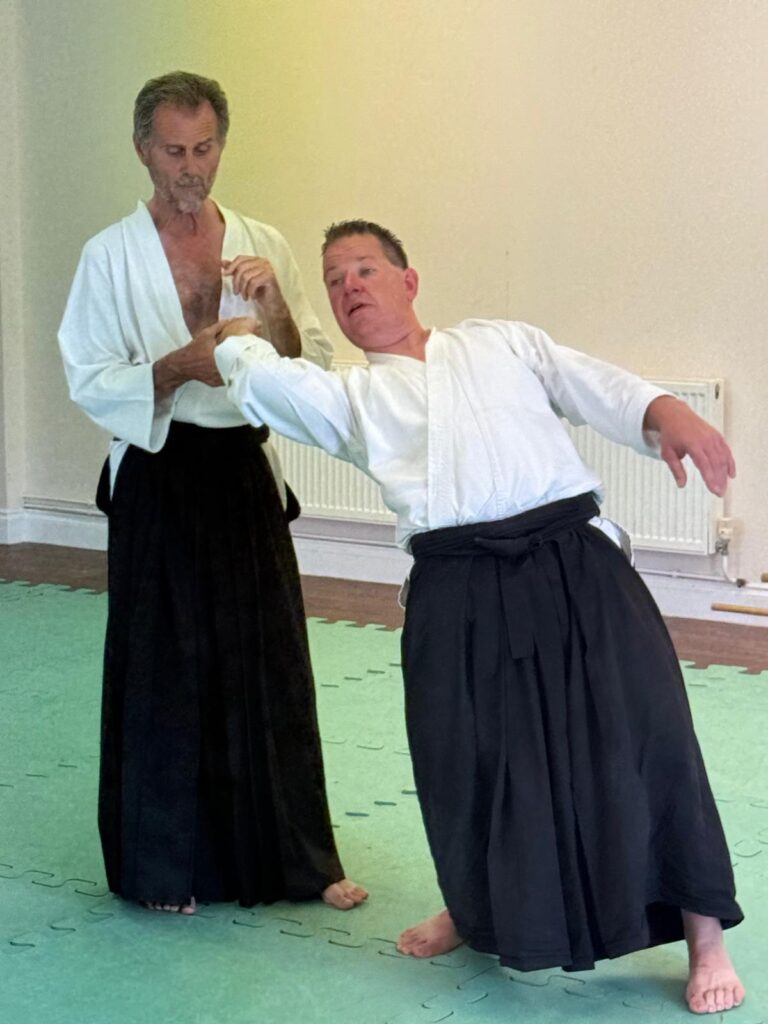
How do you know when you’re doing enough when you defend yourself?
I always find it fascinating that a group of individual Aikido teachers will teach separate sessions and out of it emerges a theme.
At the annual seminar for Aikido for Daily Life, the theme was ‘just enough’. It wasn’t intentional. Nobody planned it, but somehow it came through.
Few people ever learn the vital principle of ‘just enough’.
Not forcing
It’s often assumed that the best self-defence techniques are hard, powerful and strong. The problem is that being strong can often turn into being forceful. And when you force someone to do something, even in a fight, they tend to resist. (Especially in a fight).
Learning not to force, to do ‘just enough’, to affect the situation is a key skill. Not only in physical combat but also in verbal self-defence.
We’ve all seen people snatch defeat from the jaws of victory by going that one step too far. Pushing their luck. Forcing the issue.
Not wimping
On the other hand, wimping out is not a very useful alternative. Not doing enough can be rather dangerous. Simply giving up is rarely a useful way of surviving.
And again that applies to both physical attacks and verbal. Nobody enjoys being a doormat.
Many people, though, do too little to defend themselves because they are afraid that their attacker might grow even more violent.
In my experience, the majority of attackers back off if they realise that the intended victim has some techniques at their disposal.
But, once you decide to defend yourself, you have to commit. Physically or verbally. You have to do just enough.
The ability to do ‘just enough’.
Wouldn’t it be interesting to apply the idea of ‘just enough’ to our daily life?
Tell me what your experience has been. Were there times when you did ‘just enough’? Or maybe times when, looking back, you realise you didn’t? Maybe you did too little – or too much. Maybe you’d do it differently today.
I’d love to hear.
